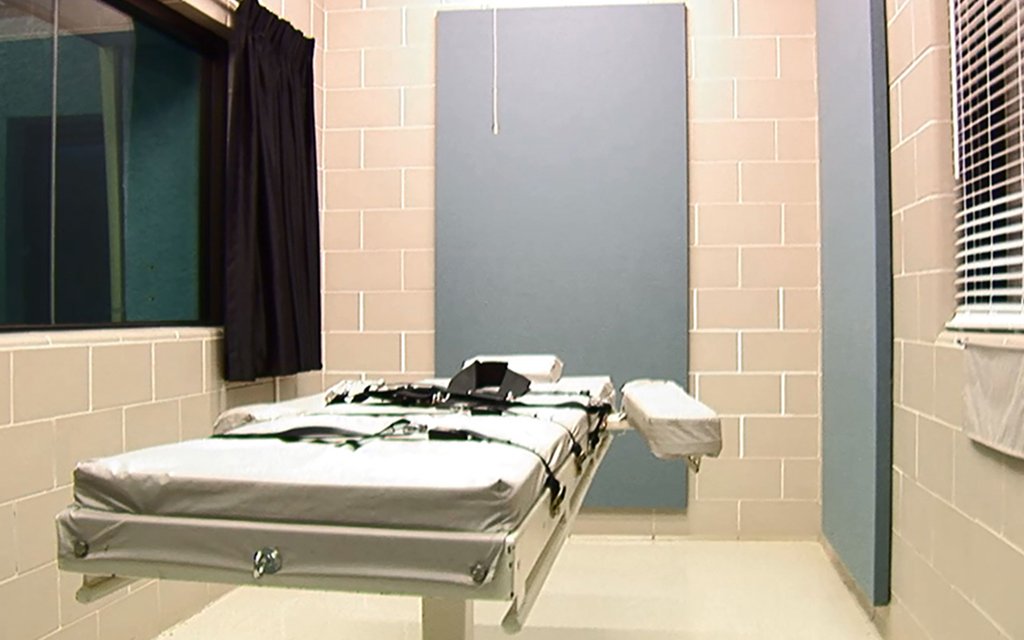Aaron Gunches
Law Professor Fights Gunches Execution, Calling Lethal Injection’s ‘Inner Terror’ Cruel

Lethal injection, long perceived as a humane method of execution, is facing increasing scrutiny over its actual efficacy and humaneness. In particular, the use of pentobarbital, a barbiturate employed in executions across Arizona and other states, raises serious ethical concerns.
Anesthesiologists emphasize that while an overdose of this drug may leave the condemned unresponsive, it does not guarantee a painless death. Instead, it can lead to complications like flash pulmonary edema, which results in the lungs flooding with fluid as the heart fails. Autopsy results consistently reveal that the lungs of executed prisoners weigh two to three times more than normal, indicating an agonizing struggle as they drown in their own fluids.
Experts liken this experience to waterboarding, a practice deemed too cruel for wartime. Over the years, Arizona has faced its share of challenges in administering the death penalty, documented in a 2019 deposition that detailed several botched executions.
On Monday, a significant legal maneuver occurred when Virginia law professor Corinna Barrett Lain filed an amicus curiae brief in favor of Arizona Death Row inmate Aaron Gunches. Gunches, convicted for the 2002 murder of Ted Price, seeks the state to expedite his execution, expressing a preference for death over continued imprisonment.
The Arizona Supreme Court is expected to establish a briefing schedule, potentially leading to the issuance of a death warrant for Gunches, who has actively petitioned for his execution to proceed. In a handwritten motion filed December 30, he criticized the necessity of further legal formalities, suggesting that they amount to state-induced delays.
Lain’s brief argues that Gunches may not fully comprehend the reality of lethal injection. She stressed that when a state executes its citizens, the implications extend beyond the individual cases. “It is vital to consider the nature of the death penalty and the risk of inflicting a torturous death,” she remarked.
Having researched lethal injection for her upcoming book, “Secrets of the Killing State: The Untold Story of Lethal Injection,” Lain addresses the troubling history of executions in Arizona, highlighting the lack of independent oversight in recent investigations into the state’s execution protocols.
Amidst this ongoing controversy, Gunches appears resolute. Previously, he came close to execution in 2022 when the state secured a death warrant. However, changes in administration resulted in the warrant’s expiration, leading to a reevaluation of the lethal injection process. The state then appointed David Duncan, a retired federal magistrate, to investigate the system’s failings.
His subsequent firing raised more questions than answers, particularly given the myriad issues surrounding lethal injection methodologies. Observations noted that corrections officials had relied on questionable sources, like Wikipedia, for dosage information. Pharmaceutical companies refusing to provide execution drugs pushes corrections departments to find alternatives, often leading to inadequate preparations.
Lain remains skeptical about the assurances given by the current administration regarding the competency of those handling lethal injection protocols. She critiques the lack of transparency, noting that an independent investigation was prematurely terminated under political pressure.
As Arizona navigates the complexities of capital punishment, Lain’s insights may emerge as pivotal in shaping public understanding and legal frameworks surrounding executions. Whether her perspectives will affect the outcome for Gunches or broader death penalty policies remains uncertain.


















